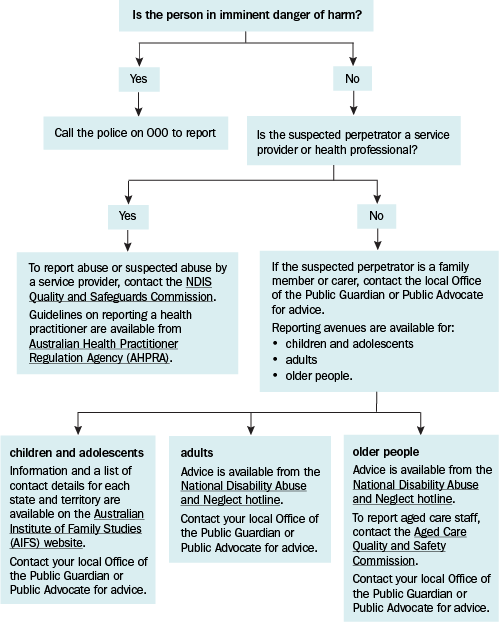Reporting considerations and pathways
If you suspect that a person with developmental disability is being abused but is not at imminent risk, abuse should be reported to police.
There may be instances where a person with developmental disability does not want you to report their situation to police. This could be because they fear being removed from their caregiver or placed in a situation where they will no longer have access to loved ones. It is critical that general practitioners (GPs) explore what the person’s rationale is and whether supports can be invoked to mitigate their concerns.
In many states and territories, the Office of the Public Guardian or Public Advocate may have powers to intervene, without involving police. GPs should also consider contacting People with Disability Australia (PWDA) for information about referral services and advocacy; see here.
Examples of reporting avenues for abuse or suspected abuse in a person with developmental disability outlines reporting avenues for abuse or suspected abuse in a person with developmental disability.
For advice on ethical and legal considerations related to reporting, including mandatory reporting, see Ethical and legal obligations.

